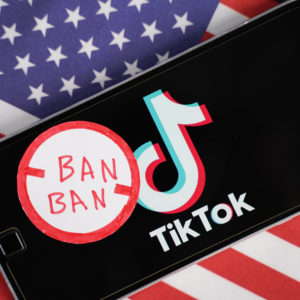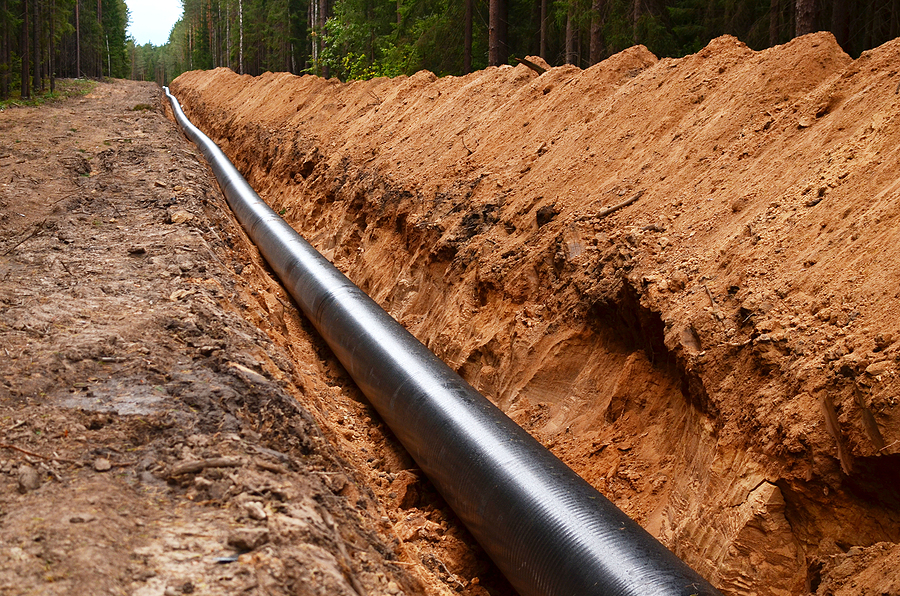Point: Congress Is Right to Call for the Strategic Divestment of TikTok

For a different point of view see: “Counterpoint: Banning TikTok Is a Blow to Free Speech”
The Chinese Communist Party in Beijing is nervous — and it ought to be. The U.S. Congress has targeted a significant tool the CCP uses to spread disinformation among Americans, and the rulers in Beijing are not happy about it. The House has voted to require TikTok to be divested from Chinese ownership, not banned, as its critics charge. This effort will protect free speech, not limit it, as the same, often well-paid, critics claim.
Of course, the tool is TikTok, a popular app that millions of Americans use to promote their companies and reach new audiences. “It’s harmless,” you might say. Only it isn’t. The app is owned by the Chinese company ByteDance, which is under CCP control. Beijing has an iron grasp over the platform’s algorithm and all user data. Your data. And it is a major U.S. national security risk.
Remember, this is the Chinese government that executed a comprehensive theft of 24 million American government and military officials’ records held by the Office of Personnel Management. It cannot be trusted with access to an even greater number of Americans’ personal data and cannot be trusted to keep from attempting to influence U.S. elections.
It’s a government that, according to respected international human rights organizations, is “waging a targeted campaign against Uyghur women, men and children” and conducting human rights abuses that include “coercive population control methods, forced labor, arbitrary detention in internment camps, torture, physical and sexual abuse, mass surveillance, family separation, and repression of cultural and religious expression.”
Of even greater concern is the disinformation and manipulation campaign that the CCP is already running on the TikTok platform, which could potentially accelerate into a contingency or conflict between the United States and China. A group of Rutgers University researchers have clearly demonstrated that the app promotes CCP interests, and they assess that there is “a strong possibility that content on TikTok is either amplified or suppressed based on its alignment with the interests of the Chinese Government.”
By comparing the volume of TikTok posts with those of Instagram, you can see how access to views on issues such as the invasion of Ukraine and October 7 and its aftermath is manipulated in a way that is helpful to Chinese national security interests. This algorithmic manipulation is even clearer and over-the-top when applied to sensitive political topics in China, such as the Tiananmen Square massacre, the Uighur genocide, and Hong Kong.
Knowing this, lawmakers in Congress passed a bipartisan bill to divest TikTok from its Chinese parent company, ByteDance. The legislation now heads to the Senate for action.
Critics of the legislation claim lawmakers want to “ban” TikTok. But it is not a ban. The House legislation calls for divesting TikTok from its Chinese parent company. The bill is a balanced and feasible solution that safeguards innovation, strengthens U.S. national security, protects the Bytedance/TikTok investors, and helps keep private information from being collected by the CCP.
In a nutshell, this divestment ensures that American users can enjoy TikTok for creative expression and to grow and market their businesses — but under new ownership that respects U.S. laws and values.
This is not about stifling speech. It is about keeping China from suppressing free speech. Remember, the Chinese Communist Party has established counterintelligence laws that give it unfettered access to data held by Chinese companies and openly practices its preference for state sovereignty over personal privacy. The CCP does not adhere to core American principles like free speech and assembly.
Divesting TikTok from ByteDance ensures the platform can continue operating in the United States, free from Beijing’s influence and without impeding individual Americans’ right to express themselves.
It’s also good for the U.S. economy. TikTok investors, including American financial services and private equity firms, stand to reap billions should TikTok be acquired by a non-Chinese company. These funds could be reinvested in new technology start-ups or other business ventures. Moreover, divestment, rather than an outright ban, ensures greater competition. Users can expect greater innovation, safer services, and a richer and more diverse social media experience — all while blunting Beijing’s ability to leverage TikTok to undercut fair elections and free speech.
Beijing is not taking this lying down. As Craig Singleton, an expert on Chinese lobbying, has observed, ByteDance has an immense lobbying machine in Washington — and the company is not lobbying for your values. It has a bottomless budget, and it is spreading that cash around to stop the House bill before it gets traction in the Senate.
Congress is right to end Beijing’s efforts to sow political discord in the United States and harvest Americans’ personal data. The House was right to pass the TikTok/ByteDance divestment legislation, as was President Biden in his pledge to sign any such bill that comes to his desk. Now, it’s up to the Senate to protect America from China’s malign influence.






